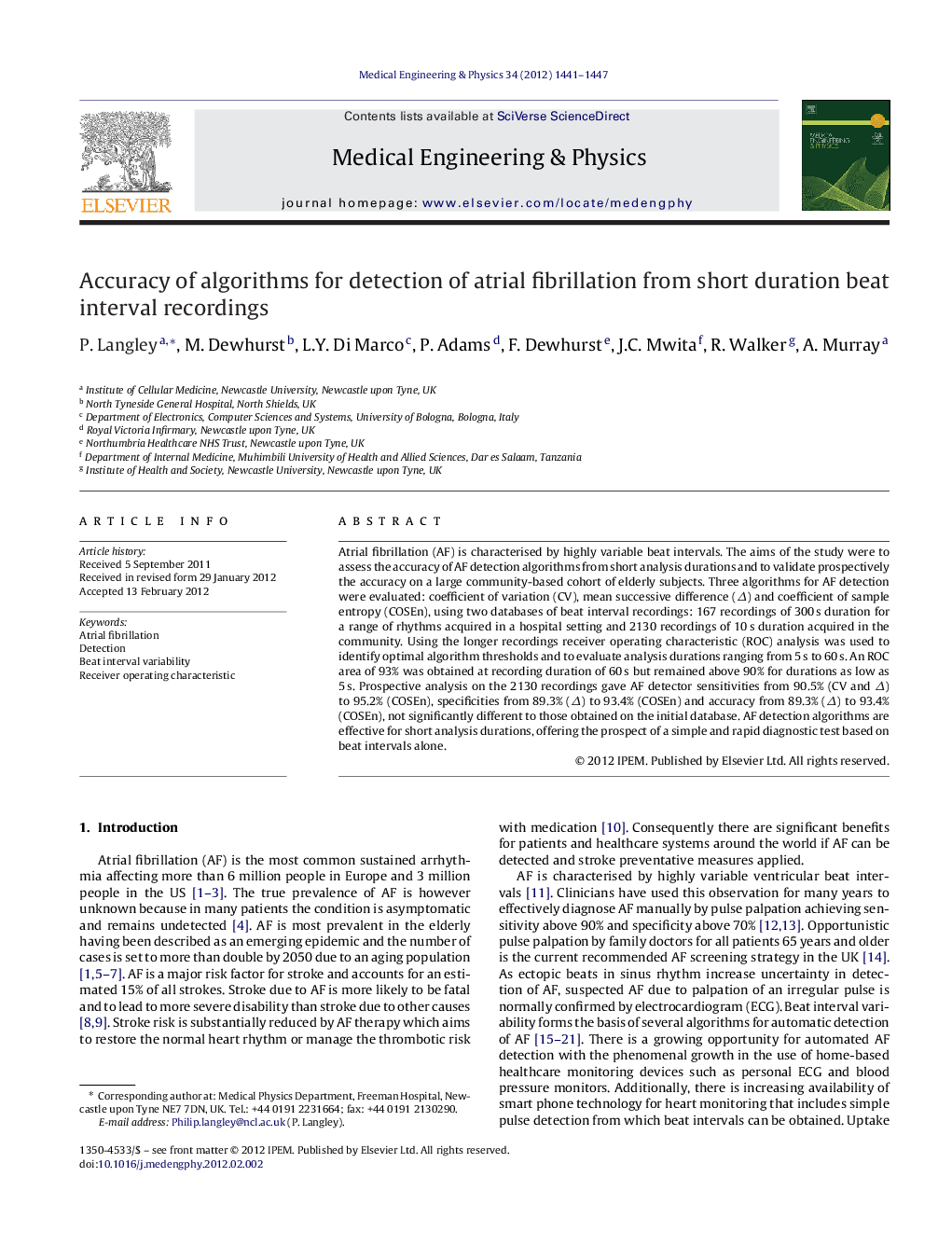| Article ID | Journal | Published Year | Pages | File Type |
|---|---|---|---|---|
| 876342 | Medical Engineering & Physics | 2012 | 7 Pages |
Atrial fibrillation (AF) is characterised by highly variable beat intervals. The aims of the study were to assess the accuracy of AF detection algorithms from short analysis durations and to validate prospectively the accuracy on a large community-based cohort of elderly subjects. Three algorithms for AF detection were evaluated: coefficient of variation (CV), mean successive difference (Δ) and coefficient of sample entropy (COSEn), using two databases of beat interval recordings: 167 recordings of 300 s duration for a range of rhythms acquired in a hospital setting and 2130 recordings of 10 s duration acquired in the community. Using the longer recordings receiver operating characteristic (ROC) analysis was used to identify optimal algorithm thresholds and to evaluate analysis durations ranging from 5 s to 60 s. An ROC area of 93% was obtained at recording duration of 60 s but remained above 90% for durations as low as 5 s. Prospective analysis on the 2130 recordings gave AF detector sensitivities from 90.5% (CV and Δ) to 95.2% (COSEn), specificities from 89.3% (Δ) to 93.4% (COSEn) and accuracy from 89.3% (Δ) to 93.4% (COSEn), not significantly different to those obtained on the initial database. AF detection algorithms are effective for short analysis durations, offering the prospect of a simple and rapid diagnostic test based on beat intervals alone.
